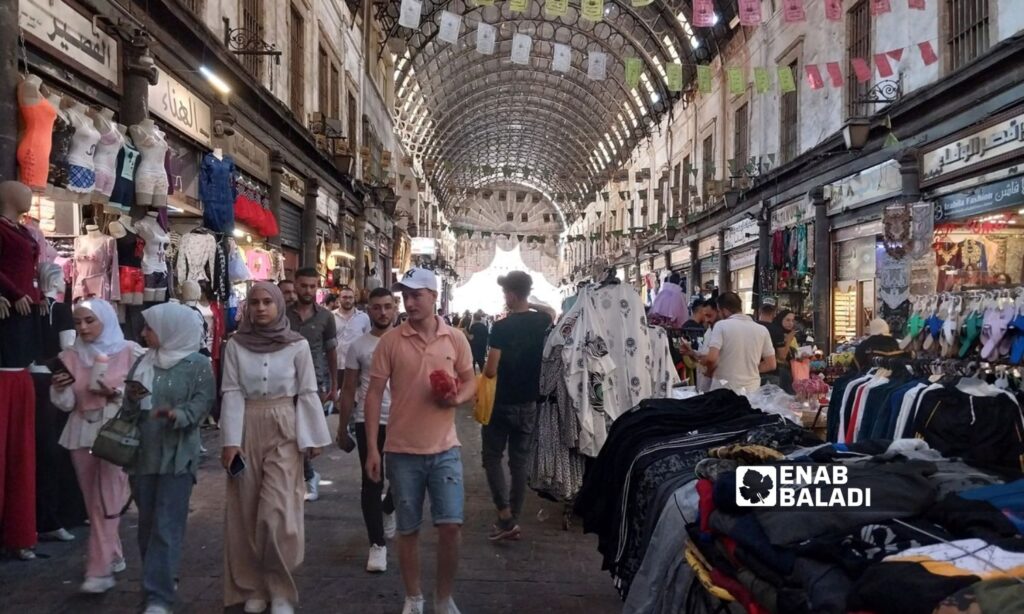The Pricing Committee in Damascus governorate issued several decisions setting the prices for services provided by cafes, popular parks, men’s and women’s hairdressing, document photocopying, and car washing services.
According to the decisions issued by the governorate on Wednesday, August 14, the price for premium men’s haircuts was set at 25,000 Syrian pounds, and at barbers who are classified as “popular” at 10,000 Syrian pounds. Women’s haircuts at premium salons were set at 30,000 Syrian pounds, and at non-classified “popular” salons at 15,000 Syrian pounds.
The governorate also set the prices for car washing services at 30,000 Syrian pounds for cranes, 40,000 for cars like SUVs, vans, and minibuses, and 100,000 for buses and trucks. The fee for washing trailers and refrigerated trucks reached 125,000 Syrian pounds.
Regarding the service fees for the governorate’s cafes, the price for a hot beverage cup was set between 5,500 and 7,500 Syrian pounds.
Most shop owners do not adhere to the pricing set by the governorate, justifying it by saying it does not match the costs they incur and thus does not achieve the required profit margin.
According to the S-P Today website, the selling price of the US dollar is 14,750 Syrian pounds, and the buying price is 14,650 pounds. The selling price of the Euro is 16,274 Syrian pounds, and the buying price is 16,159 pounds.
The minimum wage after the increase that occurred last February is 278,910 Syrian pounds, equivalent to 19.3 USD, an amount that only suffices a family to meet its basic needs for two days a month.
The general price level sees almost daily increases, affecting essential goods and foodstuffs, further weakening the purchasing power of citizens in government-controlled areas without any governmental intervention to control the price hikes.
According to the 2024 Humanitarian Needs Overview (HNO), 80% of the Syrian population will need some form of humanitarian assistance in 2024.
About 55% of the population in Syria, or 12.9 million people, suffer from food insecurity, 3.1 million of whom are severely food insecure.
Most Syrians resort to relying on more than one source to try to balance income and expenses. Prominent among these sources are money transfers from expatriates outside Syria, reliance on secondary jobs, and families cutting down on essentials to reduce their spending.











